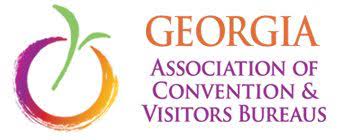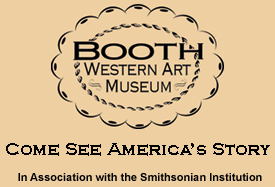The Crystal Peach
The Crystal Peach is a page dedicated to interviews of industry leaders, major artist, local acts that is moving up in the industry, etc, commentaries from the GC staff and more.
INTERVIEW WITH ASHLEY BROOKS, THE 2024 GEORGIA COUNTRY AWARDS OVERALL ARTIST OF THE YEAR AND CURRENT TWO TIME FEMALE ARTIST OF THE YEAR. (May 30th, 2025)

GC: Ashley, tell us when and how you knew you wanted to have a career in country music?
AB: Growing up and seeing my dad playing on the stage and his love for music.. it just kind of instilled that same dream in me as a child.
GC: What was your first performance, what did you sing and how did that go? (public performance)
AB: I played at a hometown bar that was just renovated from being a barbecue restaurant. It was my first time ever playing on a stage with a band, and we sold out with the whole hometown making an appearance. Since then, that place has been bulldozed down.
GC: Who were your country music idols growing up and why?
AB: I would definitely say I lean towards older country, for example Loretta Lynn and Leanne Womack, but I'm a sucker for some Gretchen Wilson. Always will be.
GC: What one country act (past or present) would you love to sit on the front porch swing with and have a chat with and why?
AB: Dolly Parton because she's a fellow female musician and I would love to hear her mindset on overcoming any adversity as a female artist and how she kept persevering to get where she is today.
GC: What is your all time favorite country song and why?
AB: Fist City by Loretta Lynn. It's sassy as hell and tells a story about whooping someone's ass..what's not to love?
GC: If you could open up for any act today, who would that be? AB: I'm grateful for every opportunity that comes my way as a new artist, but opening up for Lainey Wilson would be the biggest blessing. GC: You have won back to back Georgia Country Awards Female Artist of the Year and last year also won Overall Artist of the Year. How has that affected your career? AB: It's definitely brought a lot of new followers and listeners. People start to take you a little more seriously when you have something behind your name like an award. I have been nominated for Female Vocalist of the year for the Josie Awards this year that's held at the Grand Ole Opry...so fingers crossed. GC: You have a very distinctive, country twang in your voice and value traditional country. Do you think country music with all its variations, bro country, pop country and all, could use more traditional country acts? AB: I think yes because that's where the roots run. We all know the roots are important. GC: What venue locally do you enjoy performing at and why? AB: Probably Sixes Tavern in Cartersville, Georgia. It's one of the first bars I played at and gave me my start. It's so good to see a lot of familiar faces that have been there since day one instead of strangers. GC: What are your plans for the next year and where would you like to be in five years with your career? AB: To keep putting out music that people wanna listen to, that brings them some sort of emotion, can help them through a situation. And in five years, I hope to have played at the Grand Ole Opry or I'm doing something wrong! Mike, give us your background and how you got into radio? I got my start in radio with my first full-time job at a Top 40 radio station in Mankato, Minnesota, which is about 70 miles from Minneapolis where I grew up. I have been programming Country radio stations since the 1990s in places like Omaha, Orlando, Hartford, Portland, Oregon and now in Atlanta since 2019. What is the best thing about working for a station? I truly love the people I work with. Kincaid, Dallas, Garrett, Rachel Ryan, Lucas, and the rest of my staff are terrific! I also love meeting our listeners and helping raise money for local charities. How as country radio changed over the years? The format always ebbs and flows between traditional, rock and pop sounds. Thankfully, we seen to be more in a traditional or rock phase now with artists like Lainey Wilson and Zach Top having HUGE success. My personal preference is more traditional, or rock based. What would be your one best piece of advise to anyone wanting to get into radio? See if you can volunteer or work part-time at your local radio station! They are usually hiring part-time event staffers, particularly in the summer when we are usually busy with shows, community events and festivals. Be willing to work hard, dependable and ask lot of questions. We always have a need for hard working you people, who want to learn about the business. How has Sirius XM had an effect on radio? Honestly, Satellite Radio by itself has had very little impact on terrestrial radio. By comparison, they're audience is much smaller market by market. What has impacted radio, television and all media is smart phones. Nowadays, nearly everyone has a complete world entertainment in the palm of their hands. YouTube, Spotify, Amazon, Apple Music, Disney Plus, Satellite radio, etc. People can watch or listen to anything they want when they want it. It used to radio, TV, and newspapers. Now there are many more things competing for the public's attention. How does the station determine what songs are played? We listen to everything that comes in or that we find. We do ongoing audience research to determine which songs are working best for our audience and develop our playlist from there. What would be your advise to a singer starting out to get their music on radio? Corp to the mom & pop station. That's a tough one. First, make sure you invest in a quality recording. (We get lots of submissions from local artists that aren't produced well.) Second, does it sound like the music you hear on the radio? Third, do you have real fans and a social media following? (These are all things we use when considering local artists) Finally, do any of the stations in your area do a specialty show for local musicians? If so, they may be more receptive to your music. We have a show Sunday evenings from 7-11pm for Georgia based country artists. Where do you see over the air radio in 10 or 25 years? As I mentioned earlier, the world of media has become more and more competitive over the years. As long as radio has local, compelling personalities, who engage their listeners we'll still be here. Leslie is the main line dance teacher at Atlanta Country Nights. Monthly dance in Marietta. Leslie, you have been line dance teaching for years now? Tell us when you started and where? I started line dancing when I was 37 years old in Maryland - Moved to Louisiana in 1997 where I started teaching at Franco's Fitness Club then moved to Georgia in 1999 - I have been teaching almost 27 years - I am now 64, soon to be 65 in May - Medicare and Social Security here I come : ) What club or venue is or way your favorite place to teach and why? I really do not have a favorite club and/or venue because I enjoy and love teaching line dance - As long as I am dancing', I am a Happy Dancin' Tweety Girl. What are your top 3 favorite line dances to teach ever (and song for it)? Wow! Tough question for sure - *Day of the Dead* - choreographed by Dan Albro to the song, "Day of the Dead" by Wade Bowen / *Gypsy Queen* - choreographed by Hazel Pace to the song, "Gypsy Queen" by Chris Norman / *Lonely Drum* choreographed by Darren Mitchell to the song, "Lonely Drum" by Aaron Goodvin. You teach often even today, what keeps you still doing it?
I ask myself that very same question every day : ) - Just kidding - I LOVE my job and have met sooooooooo many wonderful people in the line dance community. It brings a Huge Smile to my face when I see people enjoying themselves. Is there a difference between the line dances that was done say at Cowboys in the 90s to today's line dances and what, if any differences? A HUGE difference indeed - Today, we teach line dances to all genres of music, not just country music. The music today in my opinion a tad harder to choreograph/teach line dances to because many of the songs have places in the music where you need to add tags and restarts to the dances - Dancers sometimes get frustrated with that but, it is what it is, and you just go with the flow because change happens every day whether we are on board with it or not.
You have choreographed several line dances, esp. lately, "Heartfirst",, what does it take to come up with your own line dance. In my opinion, the music is a big part of choreographing a dance - When I here a song that personally touches me, it inspires me to dance to it - I have only choreographed a few dances over the years and a few with other instructors - The dances that I choreographed, I did more for myself than anything else but it is nice when dancers like a dance that you choreographed - If the dance is successful, wonderful and if not, it's all good because like I said, I did it more for my enjoyment. What dance is YOUR all time favorite and why? My all-time favorite dance to dance is, *Somewhere With You* choreographed by Scott Shrank & Junior Willis to the song, "Somewhere With You" by Kenny Chesney - I LOVE the song, the flow of the dance to the song and both Scott and Junior are great guys. How long do you think you can continue to teach? As long as my body holds up and my MS cooperates, I will be teaching and dancing until I am not able. What do you see the future of line dancing will be? I believe that there will always pretty much be line dancing because it is fun and good for your body and mind - We need the younger generation to get involved - Youth is a wonderful thing but does not last forever. WSB Radio in Atlanta is celebrating this month, 100 years on the air. Did you know that WSB and Atlanta COULD had been the WSM and Nashville and maybe had THe Grand Ole Opry here? The station went on the air on March 15th, 1922. In February 1924, Lambdin Kay called Art Gillham "The Whispering Pianist" while performing on WSB, a name he used in billing on Columbia Records, radio and theatre. Gillham returned to WSB in 1937 for regular programs. In 1927, WSB became an NBC Red Network affiliate. The trademark three-tone NBC chimes were first played in the WSB studios. But how did country music start at WSB? Fiddlin' John Carson was born in Cobb County in 1894 and by 1914 he had been performing on the streets of Atlanta. Between 1914 and 1922, he was proclaimed "Champion Fiddler of Georgia" seven times. The governor of Tennessee, Robert L. Taylor, dubbed him "Fiddlin' John". In 1919, Carson began touring, mostly the areas north of Atlanta, with his newly formed band the Cronies. He became associated with many politicians of Georgia, like Tom Watson, Herman Talmadge, and Eugene Talmadge, relations that gave rise to new songs like "Tom Watson Special". Carson and his daughter Rosa Lee began a series of performances for different political campaigns: for the Tom Watson U.S. Senate Campaign in 1920, for all of the Gene Talmadge campaigns, and for the Herman Talmadge for governor campaign. On September 9, 1922, Carson made his radio debut a WSB in Atlanta, The signal of WSB radio reached far into rural areas and was an important factor in creating country music "stars" such as Fiddlin John and others, similar to the role of WSM in Nashville. Many people CAME to the studios of WSB to see and hear the live performances at the station. WSBs best known country music program was the WSB Barn Dance. From August 1926 until October 1928, the Sears Agricultural Foundation hosted a radio show, broadcast from the Atlanta Sears tower (now Ponce City Market) called "Dinner Bell R.F.D.". R.F.D. stood for the club "Radio Farmers' Democracy". The show aired on WSB radio between noon and 1 pm three times a week, featuring old-time musicians and string bands. Gradually, after the 1930s, Nashville became the capital of country music. In addition, Atlanta's aspirations to more "upscale" arts discouraged both the hillbilly band and blues scenes. thus pushed the decline of this type of country music at WSB. From the 1940s to the mid-1950s, Atlantans supported a thriving live country music scene, but the city no longer was a major center of music recording as Nashville had started the roots of country music and the Grand Ole Opry. But for a while there, if things had gone certain ways, Atlanta could had easily be today's "Nashville". (Sources: Wikipedia, WSB Radio).
Below is our interview with World Champion country dancer Rachel Champion, from Atlanta. We ask her how she got into country dancing, her experience at the World Championships, her favorite dance and more. GC: Rachel, when did you start dancing and what got you into it? RC: I started dancing when I was 19. I was home from college for the summer and my friends convinced me to got to an under 21 line dance place in Gadsden, Alabama. I got hooked that night and spent about 4 nights week over the summer. It was such a happy place for everyone to hang out and learn every line dance we could. The manager had a pro couple come in and do a two-step exhibition. That really made me want to learn more. My best friend from high school and I borrowed every video tape from the manage of the club, yes I am old, and learned everything we could. Other kids joined us and we we on our way to become couples dancers as well of line dancers. GC: Did you find couples dancing easy to learn or was there any that it took time to learn? RC: It was easy for us because we were kids and didn't care if it looked stupid, it was about fun. I will confess waltz was the most difficult. GC: What were your favorite places to go dancing early on? RC: Southern Country Express (the under age club), Dee Fords (They served food so we could get in) and Ropers in Birmingham. GC: What is your favorite dance and why? RC: Two-step of course! It was the one I saw first and the first dance I won. I think two-step music is upbeat and the tempos vary. It is a great social dance and where it all started. GC: What would be your number one tip for anyone NEW at dancing? RC: Laugh at yourself. The students who have had fun learning, usually learn the fastest. The one's who get frustrated takes longer to learn. GC: When and why did you get into competition dancing? RC: I was a college cheerleader and Team-all American, so competition was in my blood. I needed something to work towards, so it was a natural progression. Competition isn't about the winning. It's about setting goals and having accountability. GC: What is the experience like competing at the Worlds? (Country dance world championships) RC: It's amazing! Being in the same room with people from all over the world, who love country dancing as much as I do is fantastic. Trust me the awards are wonderful, but that's not the magic of World's for me. It's definitely the people. GC: What tip would you give to anyone that wanted to compete? RC: You will never feel ready. Trust your coach and get out there. GC: In 2020, you became the owner of Atlanta Dance in Marietta. What brought you to that decision and how has that experience been for you? RC: The opportunity popped up and I took it. Why? I love having a place where people can go and leave the outside world well, outside. The studio has a long standing reputation for social dancing and we need that to continue in Atlanta. We also have so people who want to compete and we are happy to help with that as well. We had our first mini match in the studio and to watch people improve and feel good about their progress and performance, reinforces what I already knew...dancing is healing. As we mature there's not a lot of things to look forward to, but dance can help you discover things you never knew you had inside you. For more information on Rachel and Atlanta Dance, go to Atlanta Dance Below is our interview with Steve Bennett, manager at Mill Town Music Hall. A former winner of a Georgia Country Award and one of the top music venues in Georgia and the south GC: Steve, tell us when did Randall, you and others first envision a concert / music hall? SB: I first heard about Mill Town in November of 2011. Randall and Tena already had plans drawn. Randall's friend, Jim Pearson of gospel group, The Diplomats, had approached him with the suggestion of opening a concert venue. A few years earlier, Randall and Tena had purchased the shopping center after Walmart moved out. At the time, this Walmart was literally the smallest Walmart in the world. Randall and Tena did not want to see the center go dark after Walmart moved out, so they purchased the shopping center and attracted new tenants for the vacant spaces. Ingle's became the flagship of the center until they built a larger store in Bremen and vacated the center. Randall had spoken to investors interested in bringing a movie theater, a bowling alley, and other things in the space previously occupied by Ingle's, but God ultimately gave him the vision for Mill Town Music Hall, and he and Tena stepped out in faith to build it. INTERVIEW WITH NEW COUNTRY 101.5FM, PROGRAM DIRECTOR, MIKE MORE (April 2nd, 2025)

INTERVIEW WITH ATLANTA AREA LINE DANCE INSTRUCTOR, LESLIE THOMPSON
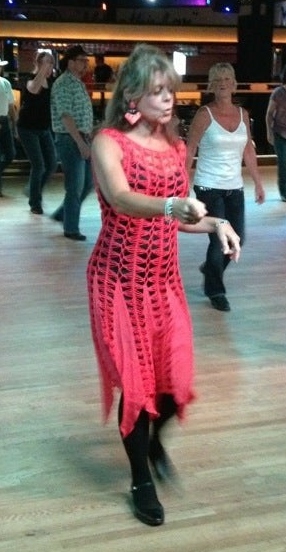
WHEN ATLANTA COULD HAD BEEN NASHVILLE
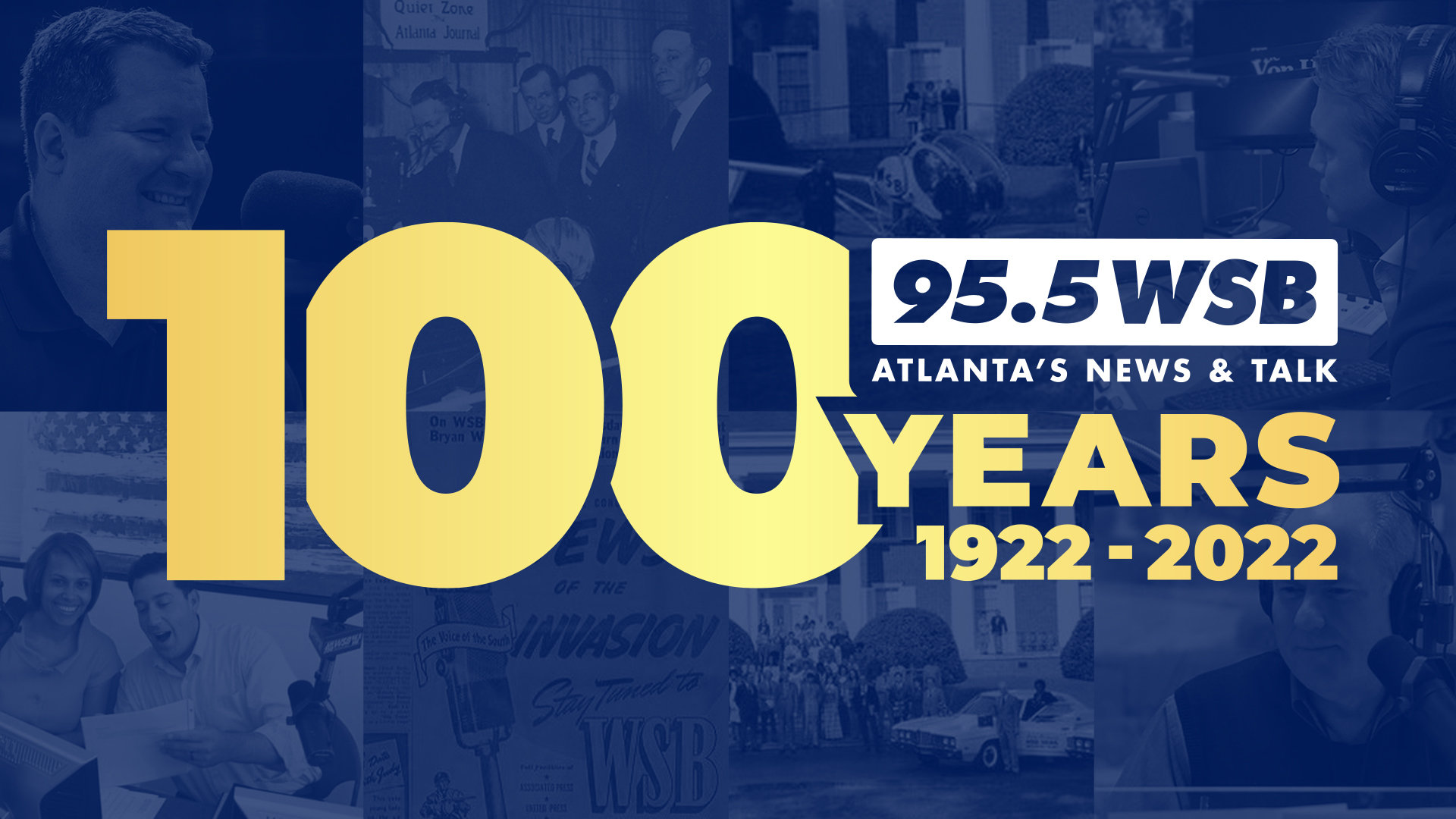
Rachel Champion interview
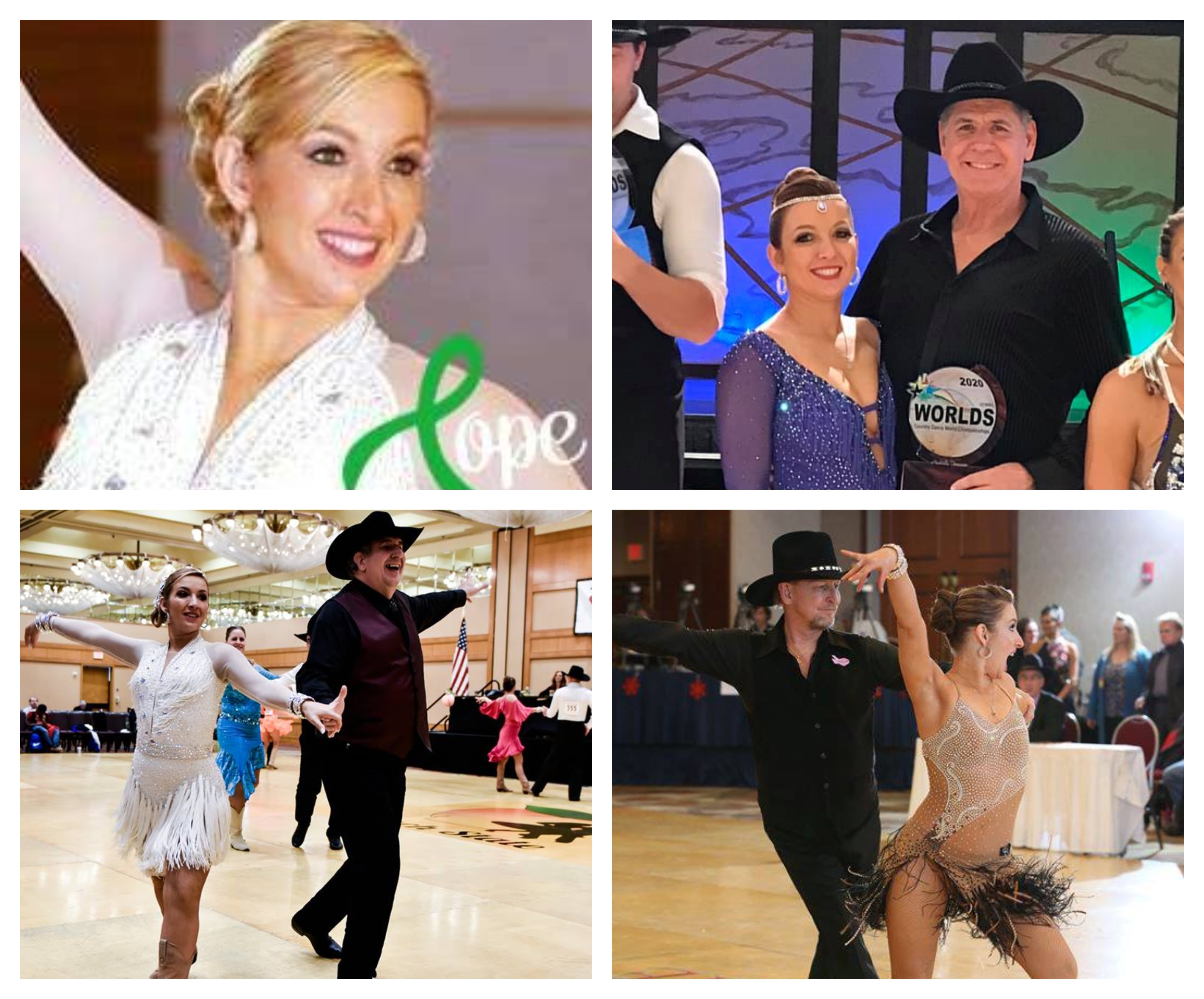
Mill Town Music Hall interview
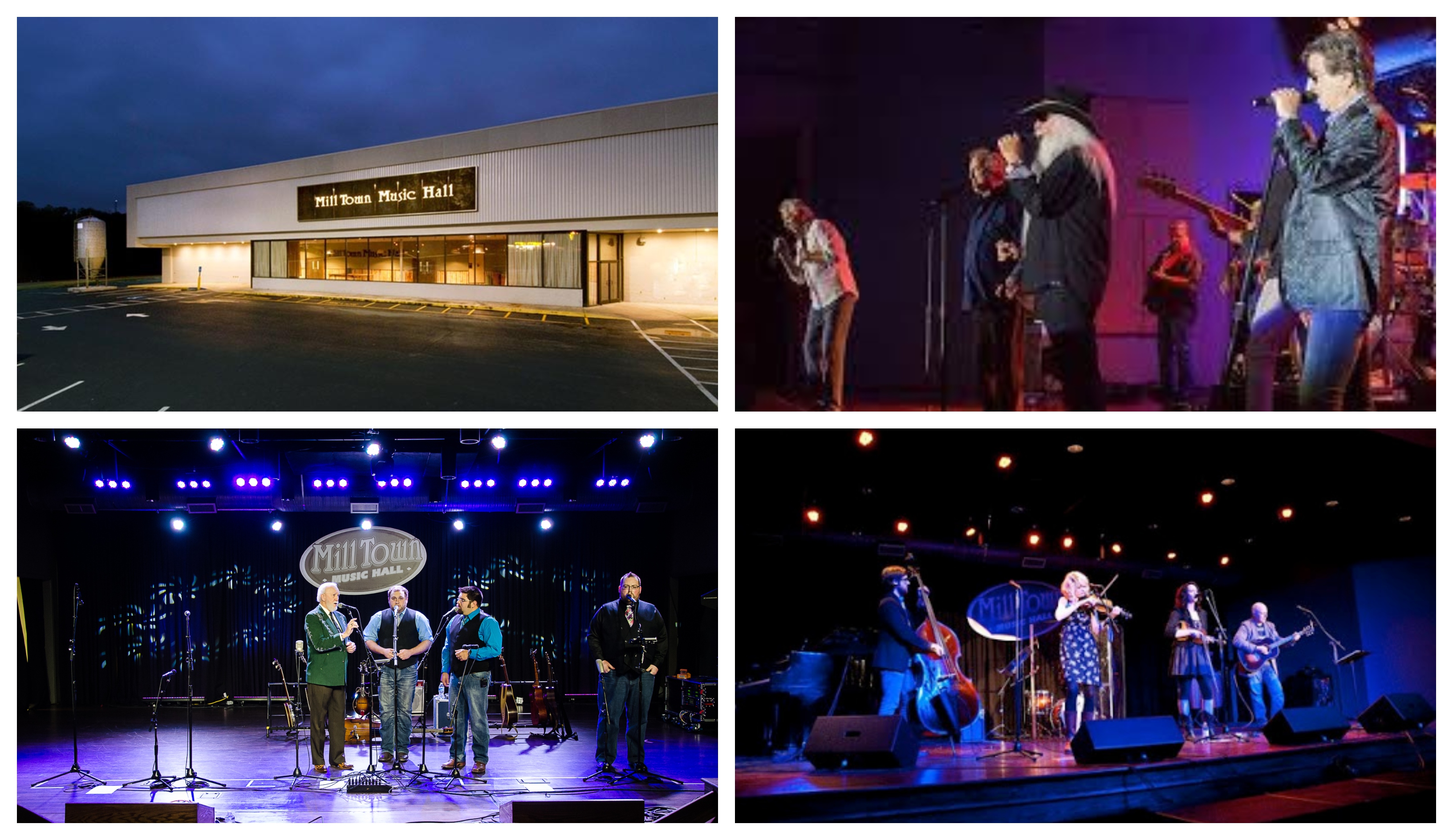
GC: How long did it take when you first talked about it to where you knew it was going to be a reality?
SB: A very short time. Randall assembled a team and told us that he wanted to open in late January. This was in mid-November. We had to get busy quickly.
GC: Was classic country artist always what you wanted to showcase and why?
SB: We had planned to have Classic Country artists from the beginning. We also wanted to feature Bluegrass, Southern Gospel, and Contemporary Christian. Some of our first artists included The Isaacs, Dailey and Vincent, Ricky Skaggs, Steven Curtis Chapman, and the Oak Ridge Boys.
GC: How did you all end up in Bremen?
SB: The venue was always going to be in Bremen because Randall already owned the building.
GC: How did the name Mill Town Music Hall come about?
SB: Bremen was a manufacturing town that at one time employed 3000 people in the clothing manufacturing business. Unfortunately, Bremen and many other US manufacturing towns were hit hard when NAFTA was introduced in the early 1990s. The name, Mill Town Music Hall, is a tribute to the greatness of Bremen's manufacturing business from the 1950s through the 1990s. During many of those years, 2 out of every 3 suits made in the USA were made in Bremen and the surrounding area.
GC: What was the biggest hurdle getting the music hall up and going?
SB: Letting people know that we were here was the biggest challenge. Many people thought a 1,000 seat concert venue could not be successful in Bremen. We began advertising in newspapers, on the radio, on billboards, on social media, and everywhere we could to get the message out.
GC: What has been the highlight of the music hall so far?
SB: There have been several. Some of the most memorable moments have been the nine consecutive sold out Oak Ridge Boys' shows, having legends like Loretta Lynn and Charley Pride on our stage, the Kenny Loggins show, and the Harold Shedd Tribute in 2012 which featured performances by Alabama and Toby Keith.
GC: You all recently lost Randall due to his ALS. What did it mean to have Randall in the history of Mill Town Music Hall?
SB: Randall and Tena are the heartbeat of Mill Town. Their fingerprints are on every aspect of Mill Town. From the decision to not serve alcohol at the shows, to beginning every show with prayer, to the extremely high levels of hospitality and customer service, to the cleanliness of the venue. Randall left a legacy that will live on not only at Mill Town, but also in the entire West Georgia community.
GC: Which artist has been Mill Town's favorite and so far?
SB: There are too many great artists to pick one favorite. Some of our favorites have been Charlie Daniels, Kenny Loggins, Sara Evans, Charley Pride, Loretta Lynn, The Temptations, John Berry, Shenandoah, T. Graham Brown, and of course, The Oak Ridge Boys. There are many more artists that we absolutely love, so it is difficult to list only a few.
GC: What do you see the future of Mill Town Music Hall?
SB: We plan to carry on Mill Town Music Hall as we did when Randall was here. There are no immediate plans to make any significant changes. God has brought us this far, and we trust Him to guide us the rest of the way.
YOUNG GEORGIA TALENT, LEAH BELLE FASER, MAKING STRIDES IN COUNTRY MUSIC
(Feb 26th, 2021) When Leah Belle Faser turned 16 this past summer, she was preparing to release her debut, Crossing Hermi's Bridge, an EP of seven original songs that served as her introduction to the world. Six months later, while Leah is promoting her new single and video, "Second Hand Store," the national media is already paying attention and suggesting the rest of the world do so as well.
Earlier this month, Bust Magazine featured Leah in an article of "5 Up and Coming Women Musicians You Should Know," and this was almost immediately followed by Wide Open Country naming her as one of "Three Artists to Watch." In 2020, she was a finalist for Teen Artist of the Year in the Georgia Country Awards.
Meanwhile, after premiering the "Second-Hand Store" video, Pro Country Music published an in-depth interview with Leah where they proclaimed that "she's laying the groundwork for what looks to be a long, successful country music career."
The "Second-Hand Store" video has picked up early adds from The Country Network, Heartland TV, and The Country Music Channel, while the single has made its way onto a variety of Spotify playlists including New Music Nashville, Sweet Tea & Sunshine, New Country Hits, and Nashville News - and was also added to VEVO's Incoming Country and TIDAL's Rising: Country playlists.
"...infectious melodies and relatable diary-like lyricism."
--Timothy Carpenter, American Songwriter
About Leah Belle Faser: Few individuals are certain of their path in life at Leah's age, much less already achieved a masterful grasp on it. However, she is one of those rare types--not only committed to her artistry but also sharing an assurance and agility translated through her music that belies her years. The EP shows off her rootsy pop-country sensibilities and bell-clear vocals. And while it is tempting to compare the high schooler to another famous young songwriter who forged her path in pop country--Taylor Swift-- Faser's vocals have a different dimension, having drawn from a rich and diverse range of influences such as Patsy Cline, Emmylou Harris, Kenny Loggins, Linda Ronstadt, Eva Cassidy, Lorde, and Tenille Townes.
To download Crossing Hermi's Bridge or for an EPK, please visit https://tinyurl.com/lbf-crossinghermisbridge. For more general information, please visit www.leahbellefaser.com
Publicity:
Mike Farley - Michael J. Media Group - 608-848-9707 mike@michaeljmedia.com
THE LEGEND & THE MAN by Wesley Fricks
Picture below is Doug Moss with Hank Williams, Jr.

(Feb 11th, 2021) DOUG MOSS, a small town country boy from rural Georgia was born to less-than-moderate circumstances in September 1953 in Lavonia, Franklin County, Georgia. He learned to play the guitar at age nine and began singing on stage at the tender age of 12.
His parents, Perry & Corene Moss, had 10 children and so much love was shared in their home. However, they knew there was something special about Doug. They so much wanted their baby boy to go to Nashville where he would have undoubtedly made a star out of himself. He wanted to play music for north Georgia and that is where he spent most of his time performing on stage.
In 1976, Doug was asked to bring his band to Athens, Georgia to play for Jerry Farmer at the J&J Center on Commerce Rd.
"I wouldn't take nothing away from some of them up there in Nashville," said former drummer and close friend, Stancel Dove, "But I tell you what, he was as good or better than a lot of them - he was great!"
It was while working at the J&J Center that Doug met Leon Everette who he spent some time out on tour around 1979-80. Everette was making millions with RCA and then Mercury Records at the time and Moss toured with Everette who recorded songs like "Hurricane," "Give me what you think is fair," "The lady she's right," and also the 1980 hit "Over."
Farmer also got the band a gig on the road for two years in 1980 with RCA recording artist, Sylvia, who won ACM's Top Female Vocalist in 1982.
That same year, Doug and the New Breed Band, perfected a friendship with professional song-writer, Roger Bowling. The Clayton, Georgia native penned such songs as "Lucille" and "Coward of the County" for Madison County's own Kenny Rogers, a Country Music Hall of Fame member. Bowling made the arrangements before his death for Doug and the New Breed Band to cut an album filled with the songs Roger had written.
Bowling died on December 27, 1982 and after some discussion with Roger's wife, Tricia, the band decided to cut the album as a tribute to Roger Bowling. Doug laid the vocals to five of Roger's songs; "I just can't get over you," "I just don't feel at home at home anymore," "Then, I'll stop loving you," "While the feeling good," and finally, "They'll never be a love song as beautiful as you."
The album was produced by Glen Sutton in Nashville at Chip Young's studio on 17th Avenue South. The album was engineered by Young who was a session guitarist that played for many great stars including Elvis from 1966 to 1977 at Presley's request.
"Roger praised you highly" said Mrs. Bowling, "And had great respect for each of you and the music you played - the music he loved so much."
Not long after Roger died, Doug went back to work for Farmer with the 441 Express Band back in Athens. They continued to work a weekly gig at the J&J Center for over sixteen years.
Farmer said Moss had a special talent, "He was the best guitar player there ever was," said Farmer, "He was good to me."
One of his last concerts was with T. Graham Brown in Royston, Georgia. He was very proud of that. As a finale, he sang the American Trilogy to a standing ovation. He was a member of rocking country band Southern Impactt for six years.
Doug was an all-round good man who thought the sun rose and set with his wife and all daughter cast. "He was a good father, too, a real good father," said long - time band member and close friend, Bill Wright. "He loved them girls, I know he did."
So you see, one's life can touch and inspire the lives of so many without ever realizing it. Doug was a legend to a lot of people around north Georgia and his impact on Georgia music fans will remain in perpetuity and the legend will live on in the hearts of music lovers everywhere.
He has contributed to the joy and happiness of millions of people who were lucky enough to know him or watch him perform on the stage through the years. A career that began nearly six decades ago rose to the pinnacle of stardom and fame and those that knew him well promise that his music will live forever in their hearts.
He was an awesome and talented musician; his vocals, his hand-eye coordination and his ear for music made him a true sensation, especially to his north Georgia fans. He certainly was loved by all those that knew him.
His contribution to country music deserves its rightful place in the Country Music Hall of Fame or shrine for future generations to enjoy.
He was a great friend to a good song and even greater friend to a good guitar.
God bless the memory of Doug Moss!
GPB TO SHOWCASE KRIS YOUMANS BAND WITH UPCOMING KEN BURNS FILM
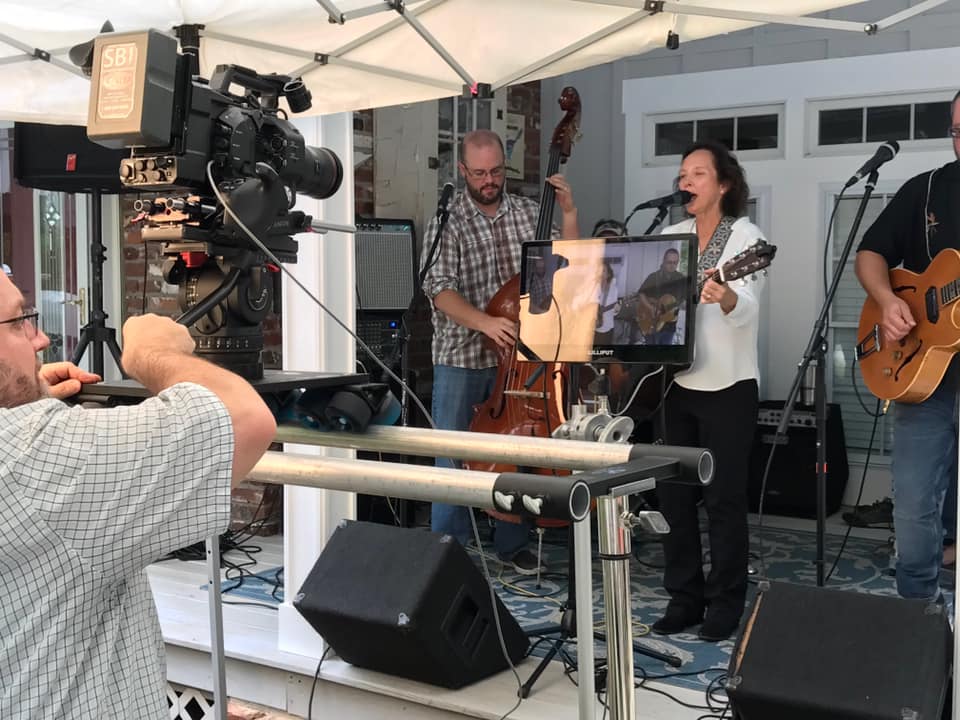
(July 9th, 2019). PBS will be airing a new Ken Burns film, "Country Music" in September. Along with that, GPB will be featuring Georgia country acts from around the state to showcase our rich history and current talent of country music. This past week, GPB went to film a performance with The Kris Youmans Band out of Newnan.
Amy Cooper, Senior Producer ar GPB contacted Kris in May and offered them the opportunity to be a part of the promotion for the upcoming Ken Burns documentary 'Country Music'. She and Carey Harrison who is the Videographer / Editor have been working on this project and picked 8 country bands from Georgia to participate. These will be 3 minute segments consisting of video and audio clips including interviews with the groups. They set up & filmed there in Newnan at Kris' next door neighbor's house on her front porch, which definitely has a scenic country background, peaceful & quiet except for some song birds and our two goats yelling at the band from their yard!
The band played one original tune "Slim Take Me Dancing', and one cover tune 'Truck Driving Man' . The band had a blast & in between filming and had fun getting to know Amy & Carey. They were professional & organized and made the experience fun for all the band. The segments should start mid-August and will lead up to the 'Country Music' documentary. Kris and her husband, Slim watch shows on GPB every day. "Ken Burns is a great film maker & his documentaries are always captivating" said Kris. "It's a series that looks at the history of country music from the southern Appalachia music, to honky-tonks, western swing, & the Grand Ole Opry & all the stories behind the songs.It's one of those documentaries you don't want to miss & we are honored to be a part of the promotion on GPB". - Kris Youmans.
ELECTRIC COWBOY CLOSING ENDING AN ERA?
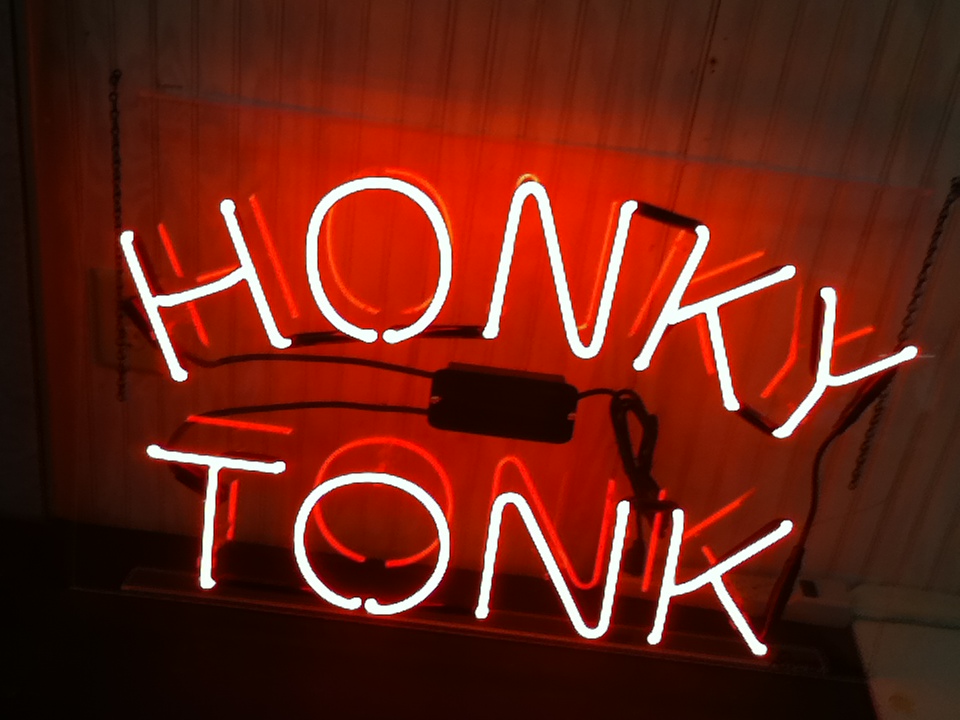
(Jan 23rd, 2019) Electric Cowboy has its last night, this coming Saturday night, Jan 26th. This potentially marks a seminole moment in Atlanta or maybe Georgia Country music history. Electric Cowboy, till Sat night, is the LAST remaining "country bar" in Atlanta. For the last 30, 40, maybe 50 plus years, Atlanta has always had at least one great country bar to go to. A place to hear your favorite country songs, to cut a rug here and there, from a two step to a slow dance with a date or where the ole' cowboy may go, drown a tear in a beer and maybe find that "next broken heart". Atlanta has had a long history of great country bars. As far back as the 70s and 80's with Mama's Country Showcase in Covington, to Wranglers and Neon Cowboy. The Buckboard in Marietta (which was lost recently, when the building and shopping center it was in, was torn down, was a great listening room for many acts, notably, Mark Wills, which lead the houseband, The Bandits. The early 90s saw an explosion in country bars in the area as country music dancing took off, on the heels of Urban Cowboy ten years earlier, but the "boot scoot" craze came into being. Then bars such as Miss Kitty's in Marietta, Two Steps West in Tucker and Crystal Chandelier (which later became Cowboys Kennesaw), along with Mama's, basically transferred Atlanta into Texas with country bars all the metro area as well as smaller joints, such as The Yellow Rose in Douglasville, Silver Saddle in Convington, Cadillac Ranch in Cumming, Sundance Saloon in Morrow, Stonewalls in Norcorss to plenty of others. Miss Kitty's was so popular that it appeared in Travis Tritt's video of "Country Club". Miss Kitty's also was one of the training grounds for Tritt & Confederate Railroad. Urban cowboys (and cowgirls) had their pick of where they wanted to kick up their boots every weekend. But, things do change and as country dancing waned some, but country music as a whole was still becoming the most popular genre in the country. Wild Bills opened up in 2003 to become the MEGA bar for Atlanta's country music lovers. Over 1000 people packed the place every Saturday night, with its HUGE dance floor and hosted some of the biggest stars in concert monthly. Cowboys Kennesaw slowed down and eventually had to shutter its doors in 2010 as well as Wild Bills a couple years later. Actually, at the end of the Cowboys run, the bar scenes in the remake of Footloose, was filmed at Cowboys. You can see the front of the bar in the video "Fake ID" by Big & Rich. Electric Cowboy (the country bar franchise out of Arkansas), took over the abandoned Cowboys, remodeled it and it has been a staple in the area up till this year. The shopping center where EC is was recently sold to a developer which will tear down the strip mall its in. So, after this Saturday night, after decades of great country bars, Atlanta will no longer have a "country bar". There will still a few places to get your "country fix" but a TRUE country bar will no longer be found in Atlanta. Southern Comfort near the Atlanta airport might be the remaining "honky tonk" but not necessary country bands every weekend. There are also a few places that hold country dancing such as West Georgia Country Nights in Carrollton and Steve Edwards Southern Mix night at Club 201 in Alpharetta. There is talk of a new country bar in Kennesaw to replace Electric Cowboy, but it will remain to be seen if it's a TRUE country bar. Country music might not be QUITE as popular as it was twenty years ago, but still is one of the top genre's of music in the country. Millions tune into stations, buy the music and crave their country music (older or newer) every day. There is no reason Atlanta cant have a country bar that is nothing but country and be successful. Let's hope we see one very soon.







